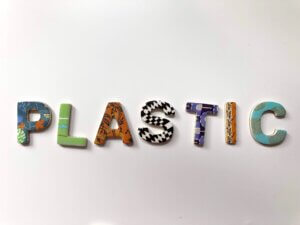The plastics industry is evolving for a sustainable future. Plastic in and of itself isn’t bad. However, due to a societal emphasis on single-use plastic production and a lack of an advanced recycling infrastructure, many controversies have ensued related to plastic waste and pollution. According to spglobal.com, “Despite broad public sentiment that plastic is harmful to the environment, it is proving hard for the global economy to quit producing new plastic products. Unlike other ecologically friendly practices, attempts to eliminate plastics have not been directly helpful to the bottom line of many consumer companies. S&P Global Ratings forecast that plastic packaging is unlikely to be replaced in the near future for many of its current uses, as plastic holds advantages over some alternative packaging options like paper or glass.” In this blog post we will explore several ways we can educate ourselves about the current state of plastic, integrate recycled plastic products into our daily minutiae, and motivate businesses to consider recycled plastic in their supply chains for a greener future.

Technological Advancements in Plastic
Technological advancements in combination with improved social awareness are driving the next-generation of sustainable plastic solutions. In this next generation, individuals want to give back to their environment. Based on a larger social moral compass, some of these technological advancements include plastics containing up to hundred percent recycled resources, depolymerization recycling technology, which enables certain types of plastics to transform back to their original monomer structure, which in turn allows infinity recycling—leading to less waste and ultimately helping to strengthen our circular economy.
How Recycled Plastic is Used in Everyday Products
Surprisingly, many products that we use every day have come from recycled plastic. According to arcadia.com, “In the U.S., about 28 percent of all plastic bottles thrown out are recycled. Products made from recycled plastic typically include bottles and containers, and often become plastic lumber for park benches, picnic tables, lawn furniture, playground equipment, and recycling bins.” Did you know that an ordinary plastic bottle can be broken down into a t-shirt or sweater? In fact, ten recycled plastic bottles are enough to make one sweater. Also, recycled plastic can be used to make sleeping bags, backpacks, and carpeting. By turning recycled bottles, packaging, and other plastic into new goods we have more socially responsible carbon footprint, help the environment, and create new economic opportunities.
Businesses Play a Crucial Role in a Sustainable Future
Businesses have a major impact on our societal sustainability. Companies that have a more responsible carbon footprint and an eco-friendly approach to materials are currently getting more positive attention from investors and consumers alike. Plastics recycling keeps still-useful materials out of landfills and encourages businesses to develop new and innovative products made from them. According to griffith.edu, “Large organizations and businesses play a crucial role in encouraging a sustainable future, be it economic, environmental, or social. As a business’s primary function is to address challenges in society and provide solutions, it’s imperative that they continuously evolve and adapt to serve their consumers.”
There are a vast number of commercial grade plastics that are extremely popular in the rotation of large corporations. For example, Polyethylene Terephthalate for the use of soft drink bottles and soap containers, High-Density Polyethylene for the use of toys, outdoor signage, PVC for flooring and piping, polystyrene for appliances, and acrylic for windows, greenhouses, displays, and signage. However, many companies are trying to find alternatives or find an environmentally responsible substitute. Take for instance eco-conscious and responsibly manufactured, Acrylite proTerra at Acme Plastics, an environmentally friendly option to any and all acrylic sheet needs. Comprised of approximately 90-percent reused acrylic glass, this environmentally friendly material is available in always popular and multi-use, clear. The co-extruded material boasts impressive qualities. It has glass-like clarity, is impermeable to UV radiation, is weather-resistant, glossy on both surfaces, has low thickness tolerance, and is stronger and lighter than comparable glass products.
Conclusion
The more we recycle, the less garbage ends up in our landfills and incineration plants. By repurposing plastics and other materials, we can save production and energy costs, and reduce the negative impacts that the extraction and processing of virgin materials has on our environment. According to recylecoach.com, “Aside from reducing how much new plastic finds its way into the hands of consumers – recycled plastics reduce energy during manufacturing by 66%. That means less fuel burnt, and less harm to the local environment. The truth is, because a lot of plastic is highly recyclable – it’s an ideal sustainable material.” More recyclable-friendly plastic materials used by large industries and thought leaders will ultimately contribute to a better and more efficient world.

